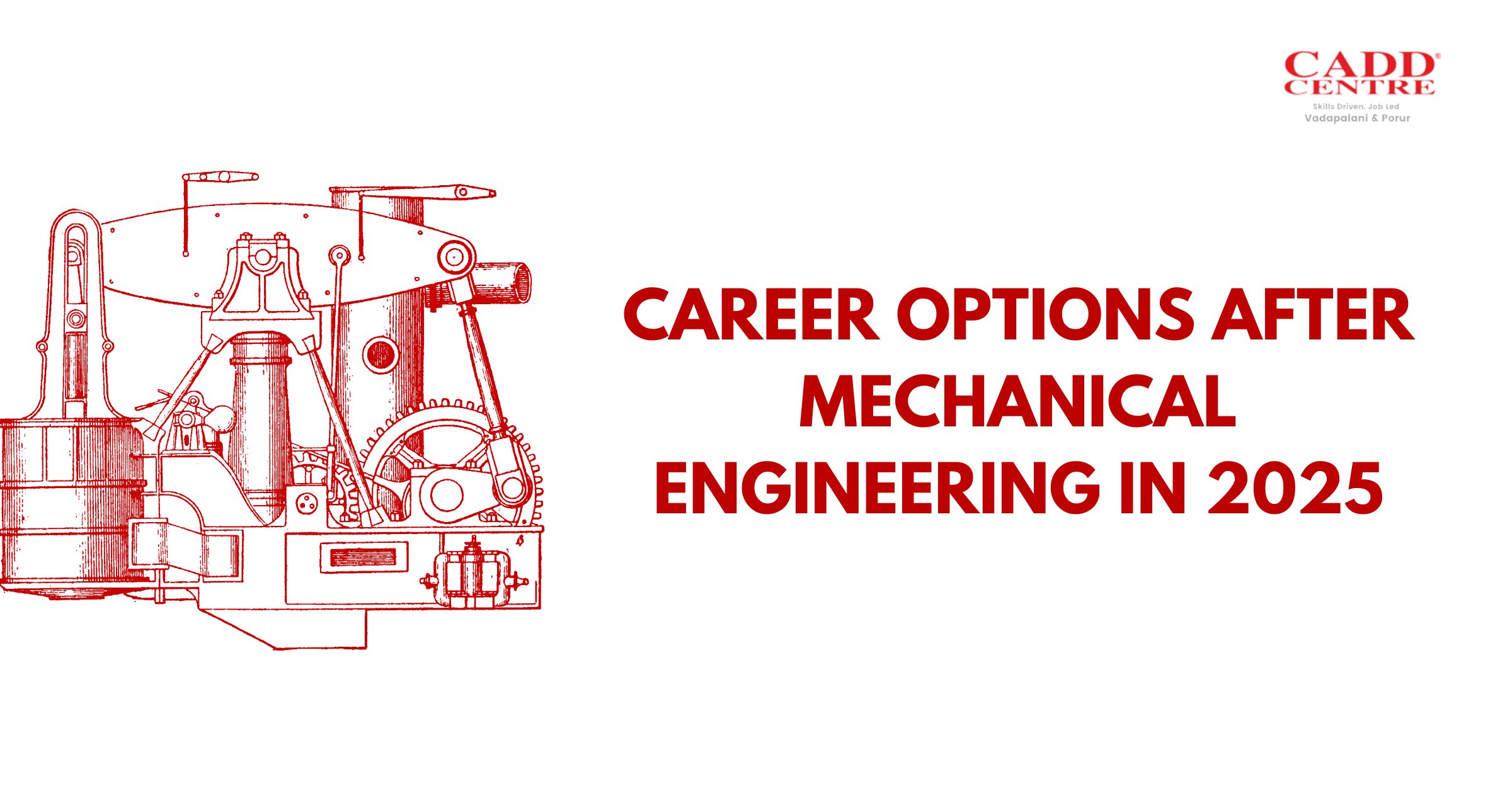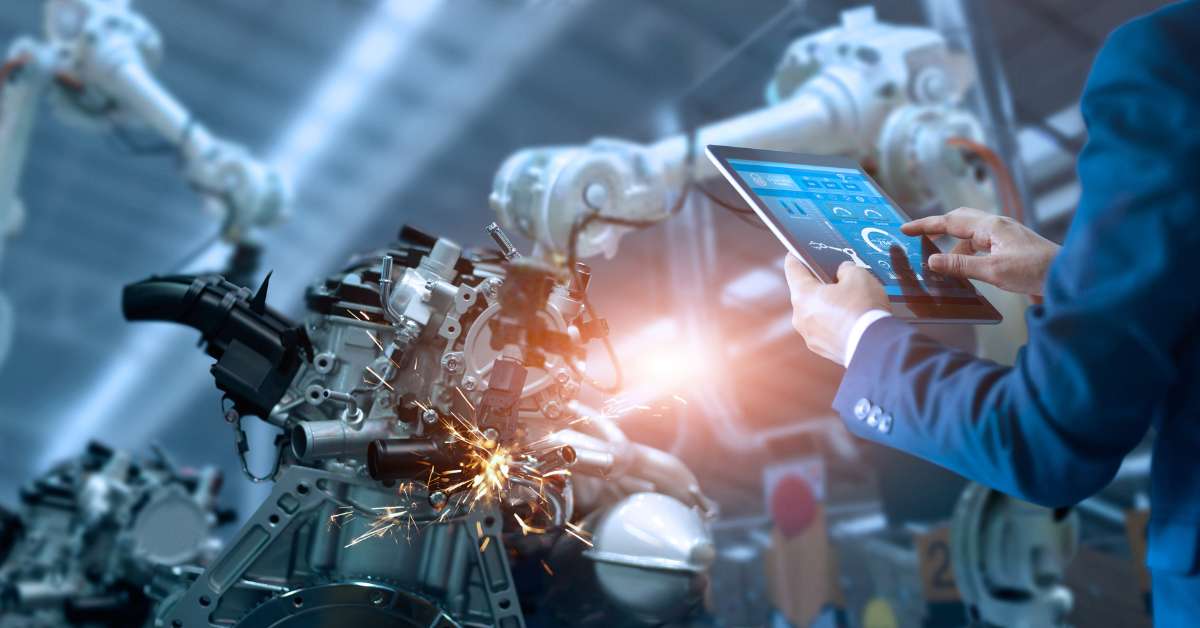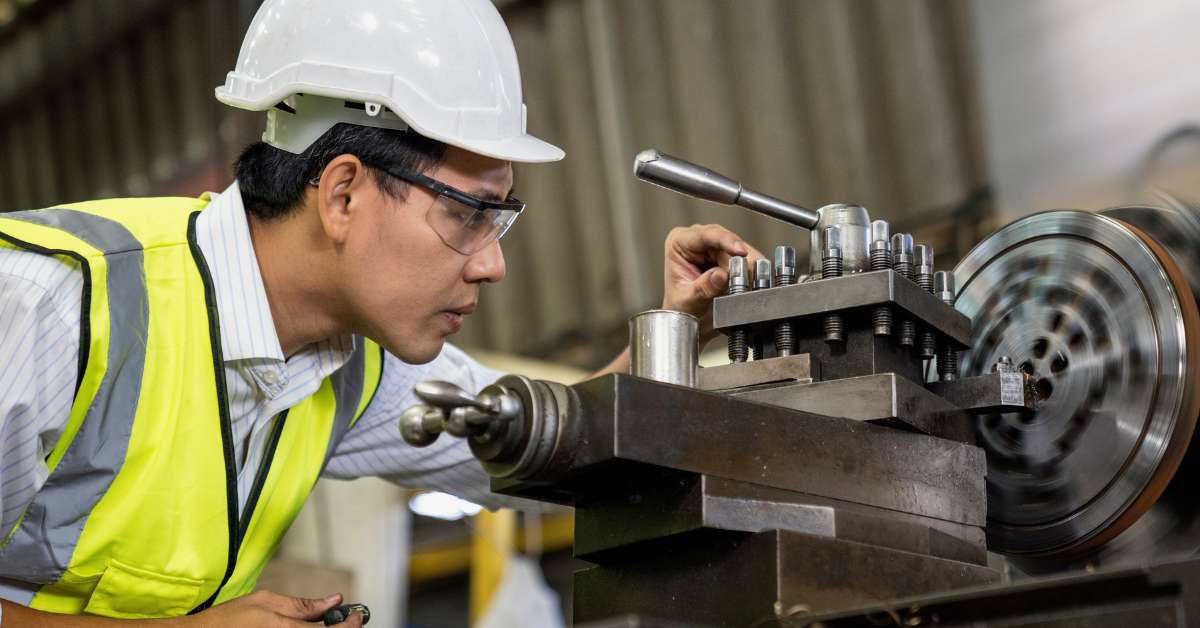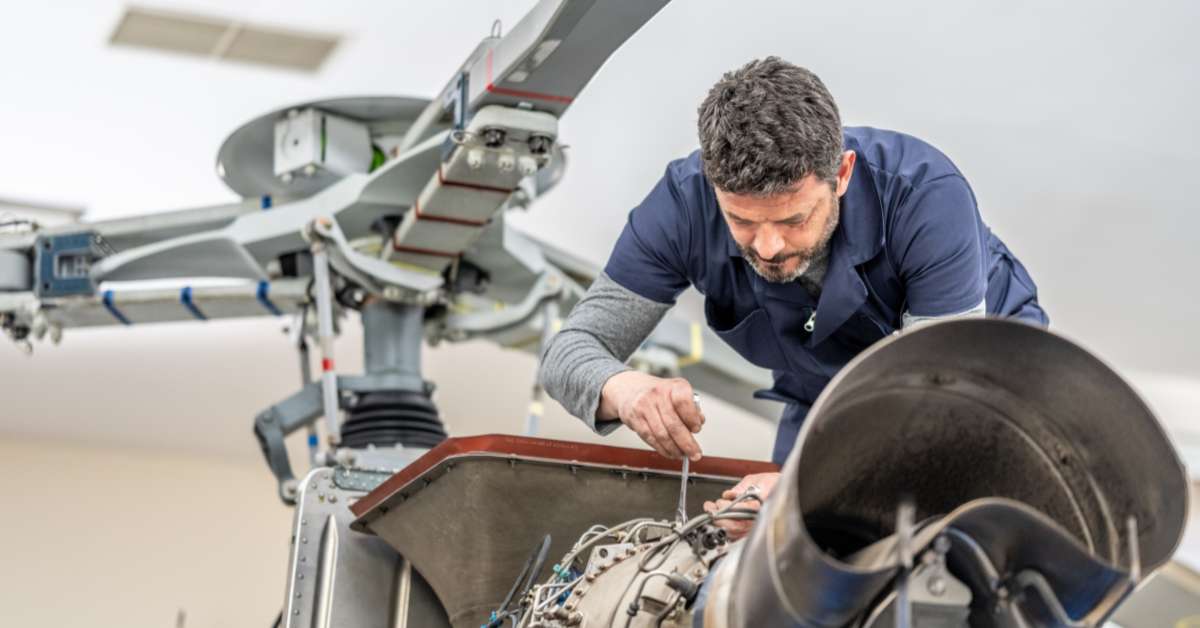Career Options after Mechanical Engineering in 2025

The field of mechanical engineering has grown and expanded in response to the rapid global changes in technology, industry, and innovation in 2025. The future is still being shaped by mechanical engineers in this technologically advanced, fast-paced world. There are beyond traditional jobs in manufacturing and design, career options after mechanical engineering are currently identified by intersections with cutting-edge domains such as artificial intelligence, sustainable energy, and advanced materials. This blog will help you navigate the terrain of career choices available to mechanical engineers in 2025.
Career Options after Mechanical Engineering
The essential foundations of the field remain strong while emerging technology and specific specializations are pathways to a wide range of jobs after mechanical engineering. Here is the list of career options after mechanical engineering in 2025 for mechanical engineers:
1.Design Engineer:
Design engineering is one of the best career choices for mechanical engineers. Design engineers are the foundation of their field; they are the scientists who transform concepts into physical forms. The field of design engineering is also one of the best career options after diploma in mechanical engineering. Their proficiency with design engineering software like CAD and analytical skills guarantees that each creation operates with precise efficiency, for example, from complicated gears that link with silent precision to massive wind turbines that capture the energy of the wind.

Required Skillset for Design Engineer:
Here are the skills required for design engineer :
- Strong understanding of engineering principles
- Proficiency in CAD software and design methodologies
- Creative and innovative thinking
- Analytical and problem-solving skills
- Communication and Collaboration skills
2. Automation Engineer
Automation design engineers are professionals in designing, deploying, and improving automated systems. Being an automation transforming industry, mechatronics engineers have skills for programming, and robotics can be called automation engineers. They design and implement automated systems that use robots, sensors, and software to enhance production lines, improve quality control, and even automate complicated operations in industries including manufacturing, logistics, and healthcare.
Required Skillset for Automation Engineer:
• Proficiency in programming languages (Python, Java, JavaScript, C++, etc)
• Expertise in automation tools and framework
• Machine Learning and AI
• Analytical thinking
• Problem solving skill
3. Manufacturing Engineer

The manufacturing engineers are positioned centrally in the production process for continuous improvement and streamlining, as manufacturing offers massive career opportunities after BE mechanical. Through the application of lean production and quality control, the specialists will oversee an efficient and inexpensive manufacturing process. The manufacturing industry represents an essential part of mechanical engineering as it always provides a great chance to improve and innovate the process.
Required Skillset for Manufacturing Engineer:
- Knowledge of manufacturing process (machining, welding, casting, etc)
- Proficiency in automation
- Strong planning skills
- Understanding of production and process
- Effective communication skills
4. AI and Machine Learning Engineer
Engineers in this field create intelligent systems as mechanical engineering approaches with artificial intelligence and machine learning. Artificial Intelligence and Machine Learning are growing careers related to mechanical engineering. They analyze predictive maintenance and use data analytics to optimize mechanical processes. The collaboration of AI and mechanical engineering not only has a positive effect on productivity but also initiates self-adjusting, self-learning systems, which means a revolution in the industry. The field of AI and Machine learning engineering are the best career options after b tech mechanical engineering.
Skills required for AI and ML engineer:
- Familiarity with machine learning algorithms
- Expertise in programming languages
- Strong knowledge of mathematics and statistics
- Data engineering and processing skills
- Problem-solving and critical-thinking skills
5. Aerospace Engineer
Astronaut engineers are the craftsmen who build the rockets, spaceships, and satellites that reach beyond the limits of our space. With an increasing number of people taking up astronauts as a profession, mechanical engineers whose abilities focus on manufacturing, automation, and project management will be on the frontline of designing spacecraft, propellant systems, and satellites as it is considered to be great scope after m tech in mechanical engineering. Astronauts from the new generation who aspire can fulfill their dreams to be in the aerospace engineering field.

Skills aerospace engineers need :
• Strong foundation of engineering principles (mechanics, aerodynamics)
• CAD software proficiency
• Structural analysis
• Problem-solving
• Decision making
• Creativity
6. Robotics Engineer
Robotics engineering fields are leading the way by using robotics experts being the best career options after b tech mechanical, who incorporate intelligence in machines that will do the job, change industries, and give company. The main responsibility of robotics engineers is robot systems’ processing, development, and implementation. The people in this group who are experts in mechatronics, control systems, and artificial intelligence are the ones who are at the forefront of robot development for different industries such as manufacturing, healthcare, space exploration, and others.
Skills needed for robotics engineer :
• Knowledge of popular programming languages
• Team player skill
• Thinking creatively
• Designing skills, etc
7. Maintenance Engineer
The field of maintenance engineering does perform a critical duty of maintenance of machinery and equipment, to attain the desired level of reliability and efficiency. Maintenance engineering comes under top career options after engineering in mechanical as it significantly cuts down on downtime and improves operational effectiveness through the implementation of a preventative maintenance plan, as well as troubleshooting and performance optimization. Their work is essential to keeping mechanical systems functional for a long time in many different industries.

Skills required for maintenance engineer:
• In-depth knowledge of mechanical systems
• Proficiency in maintenance tools and software
• Time management
• Grasp of different maintenance strategies
8. Biomechanical Engineer
Biomechanical engineers use machinery engineering technology in medical engineering by creating prosthetics, medical devices, and biomechanical rehabilitation instruments that function innovatively. The one that plays a vital role not only in improving patient care but also in the quality of life along with healthcare technology, being the great options after mechanical engineering. The combination of mechanics and biology offers so far unknown possibilities in the medical world.
Required Skill for Biomechanical Engineer:
• Strong foundation in mechanics
• Understanding of anatomy and physiology
• Mastery of software tools like FEA
• Biomaterials and tissue engineering
• Data analysis and interpretation skills
Career options after B Tech Mechanical Engineering:
- Systems Engineer
- Applications Engineer
- Renewable Energy Consultant
- Manufacturing Engineer
- Mechanical Device Engineer
- Mechatronics Engineer
- Process Development Engineer
- Design Engineer
- Electro-Mechanical Engineer
- Power Engineer
Career options after engineering in mechanical(B.E.):
- Aerospace engineer
- Automotive engineer
- CAD technician
- Control and instrumentation engineer
- Maintenance engineer
- Mechanical engineer
Career options after M Tech in mechanical engineering:
- Computer-Aided Designer
- Production Engineer
- Industrial Engineer
- Thermal Engineer
- Nuclear Engineer
- Automobile Engineer
The traditional jobs in the industrial, energy, and automotive industries remain plentiful, but the dynamic job market also provides chances to develop fields such as renewable energy, artificial intelligence, and smart technologies. However, these aren't your only jobs as the career options after mechanical engineering are evolving rapidly. As a result, job profiles that do not exist today will exist in the next decade. It only requires focusing on learning the demanded skills and knowledge. Getting knowledge of trending mechanical software will help you greatly in adapting to the field and other branches of the profession related to this field.


